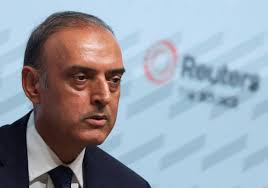Pakistan approves virtual assets law, also to launch digital currency pilot
As part of sweeping efforts to
modernize its financial system, the State Bank of Pakistan (SBP) is preparing
to launch a pilot project for a central bank digital currency (CBDC), while
also finalizing legislation to regulate virtual assets, SBP Governor Jameel
Ahmad announced on Wednesday.
Global momentum around central bank
digital currencies continues to build, with countries like China, India,
Nigeria, and several Gulf states already piloting or issuing digital
currencies. Pakistan's move aligns it with this growing trend toward
blockchain-based payment systems.
Speaking at the Reuters NEXT Asia
summit in Singapore alongside Sri Lanka’s central bank chief, P. Nandalal
Weerasinghe, Ahmad said Pakistan is actively developing internal capacity for
its CBDC initiative and expects to roll out a pilot in the near future.
“We’re building up our capabilities
on the CBDC front,” he said, adding that the SBP is also engaging with
technology partners to support the effort. He confirmed that Pakistan’s virtual
assets legislation is in its final stages and will establish a framework for
licensing and regulating the digital asset space.
Read More SBP
set to launch Pakistan's first digital currency
This follows the formation of the Pakistan Crypto Council (PCC) in March—a government-backed body created to advance crypto innovation and adoption. The PCC is exploring opportunities such as bitcoin mining using surplus energy and has appointed Binance founder Changpeng Zhao as a strategic advisor. It is also in talks with U.S. crypto firms, including World Liberty Financial, which has ties to former U.S. President Donald Trump. Plans are underway to establish a state-managed bitcoin reserve.
Although virtual assets are not
currently banned in Pakistan, the SBP has advised banks and financial
institutions to avoid engaging with them until a formal regulatory framework is
in place.
“There are risks in this rapidly
evolving space, but also significant opportunities,” Ahmad noted. “We need to
strike a balance—mitigating the risks without losing out on the transformative
benefits.”
Read More Pakistan
seeing growing trend of digital payments
Virtual Assets Act, 2025 Passed
On the same day, Bilal bin Saqib,
Pakistan’s Minister of State for Blockchain and Crypto, announced that the
government had passed the Virtual Assets Act, 2025. The new law
establishes the Pakistan Virtual Asset Regulatory Authority (PVARA)—an
autonomous federal body tasked with licensing, regulating, and supervising all entities
operating in the virtual asset space.
The law has been formally approved
by the Federal Cabinet, the Prime Minister, and the President, as confirmed in
a statement from the Office of the Special Assistant to the PM.
Monetary Policy and Economic Outlook
Governor Ahmad also reaffirmed the
SBP’s commitment to a firm monetary policy stance, aiming to anchor inflation
within its medium-term target of 5–7%. Pakistan’s benchmark interest rate has
been reduced from a peak of 22% to 11% over the past year, as inflation eased
sharply—from 38% in May 2023 to 3.2% in June 2025. The average inflation for
FY2025 stands at 4.5%, the lowest in nine years.
“We’re seeing the positive effects
of tight monetary policy, evident in both inflation control and improved external
balances,” he said.
Read More Pakistan
Crypto Council, World Liberty Financial ink deals to boost investment
Addressing concerns about currency risk, Ahmad dismissed fears of dollar weakness, explaining that most of Pakistan’s foreign debt is dollar-denominated, with only 13% held in Eurobonds or commercial borrowings. “We don’t expect any significant impact,” he added.
He also highlighted a recovery in
Pakistan’s foreign reserves, which have risen to $14.5 billion—up from less
than $3 billion two years ago.
Regarding the country’s ongoing $7
billion, three-year IMF programme (set to run through September 2027), Ahmad
stated it is “progressing well,” citing reforms in fiscal management, energy
pricing, and currency policy. “We’re optimistic that once this programme ends,
Pakistan may not require an immediate follow-up arrangement,” he concluded.
Source: Mettisglobal
